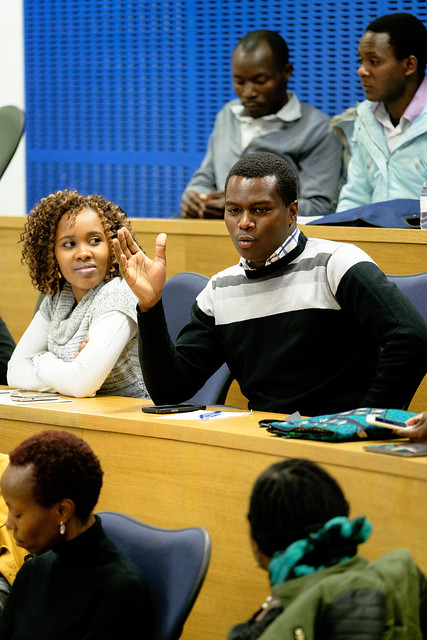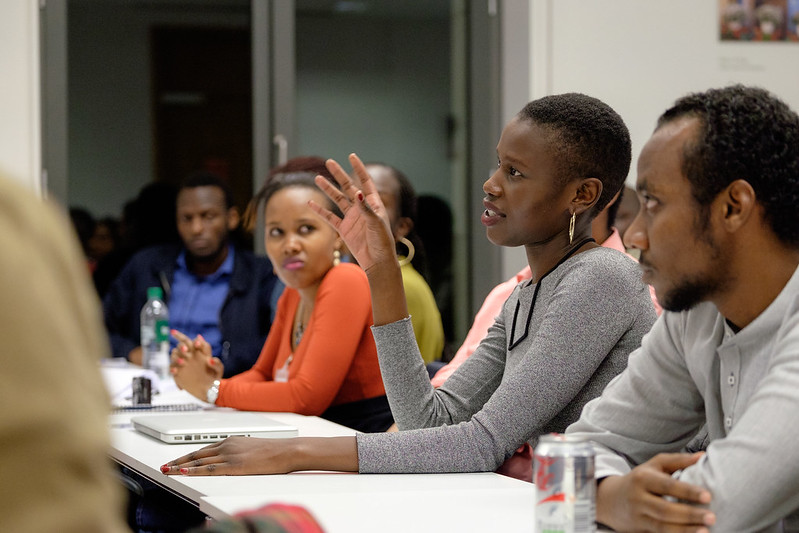We, members of Programme of African Leadership (PfAL) Network who attended the first Forum of the network at the Speke Resort Hotel in Munyonyo, Uganda from 14th– 16th January 2016, wish to express our deep concern regarding the unfolding humanitarian crisis in Burundi.
PfAL is a network of African leadership drawn from different sectors of the society and whose members hold leadership positions at community, country and international levels. The PfAL Network is committed to fostering social justice and human rights in Africa. We are cognizant of the fact that conflict has cost many lives in different African countries and acknowledge that Africa’s development is often derailed by poor governance practices and divisions among political leadership.
Following the immediate developments after the disputed Burundi National Elections of July 2015, there continuously been report of threats, violations and displacement of civilians in the country. According to the reports there has been increased growth in number of activists fleeing the country and violent attacks directed towards civilians and women. As citizens of the African continent we wish to state that the crisis not only affects Burundi but the entire region.
In solidarity with the approximately 144,000 refugees who have fled Burundi to other parts of Africa we therefore;
- Condemn the heinous acts of killings and maiming of the people Burundi;
- Note with concern the postponement of the peace talks and urge a peaceful, negotiated resolution of the crisis;
- Encourage return of the parties involved in the ongoing conflict to the commitments and principles of the Arusha National Accord;
- Express our support for the African Union initiative intended to bring the carnage to an end;
- Urge all neighboring countries to restrain militia in their respective territories who are stoking the war in Burundi and put an end to the illicit movement of arms into Burundi;
- Call upon the Government of Burundi, opposition and militia forces to declare immediate and an unconditional ceasefire and cessation of hostilities directed towards civilians;
- Appeal to the leadership of Burundi to uphold constitutionalism, rule of law and respect for human rights and;
- Call upon African leaders to commit to ethical and accountable leadership aimed at enabling peace, social justice and equitable development for all our people.
Email: info@pfalfoundation.org
Endorsed by
Aaron Timothy Kirunda – Uganda
Adebimpe Atinuke Balogun – Nigeria
Alice Mogwe – Botswana
Andrews Addoquaye Tagoe – Ghana
Annet Kisaka Magolo – Uganda
Atek Eunice Gillian – Uganda
Benedict Wachira – Kenya
Butare Bernard – Uganda
Charles Ogeno – Uganda
Charles Andrew Edimu – Uganda
Clement Gyimah – Ghana
Donnas Ojok – Uganda
Fiona Imbali – Kenya
Garang Buk – Rep of South Sudan
Genevieve Imbali – Kenya
Helen F. Mayelle – Uganda
Kassim Mwanika – Uganda
Lesoetsa Makafane – Lesotho
Merekaje Lorna Nanjia – Rep of South Sudan
Michael Mugisha – Uganda
Moses Omondi – Kenya
Nanyonjo Rhonah – Uganda
Naomi Barasa – Kenya
Sheila Keetharuth – Mauritius
Trufena Ogol – Kenya
Tseguereda Abraham – Ethiopia
Yusuf Kiranda – Uganda
Zahid Rajan – Kenya
Download the PDF here.


